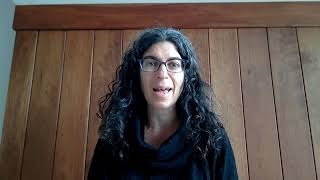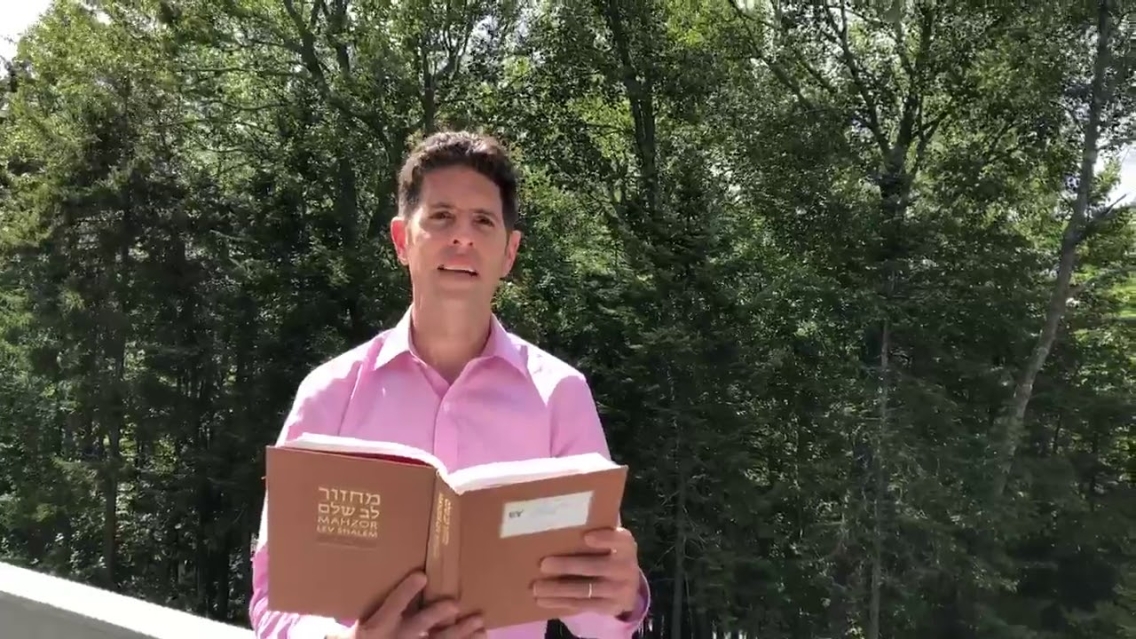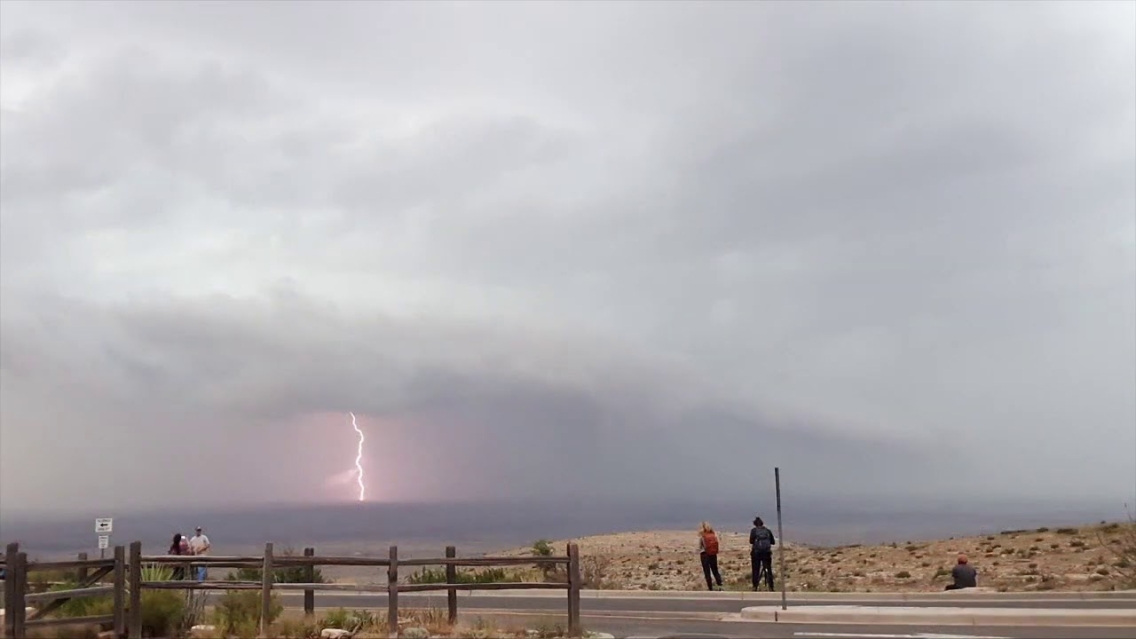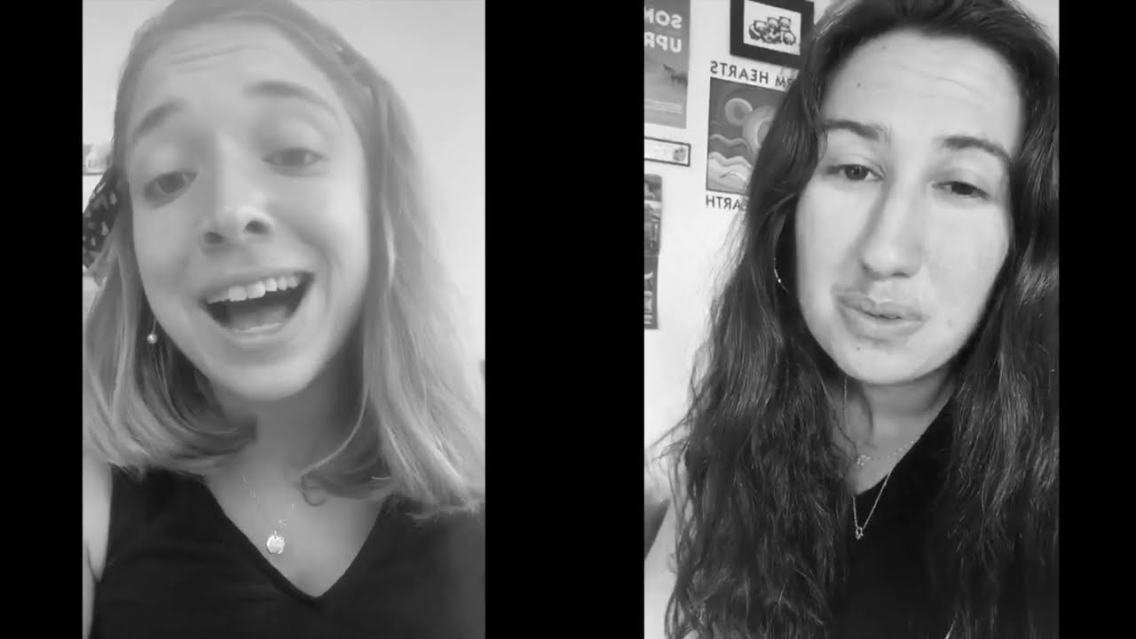High Holidays 2020
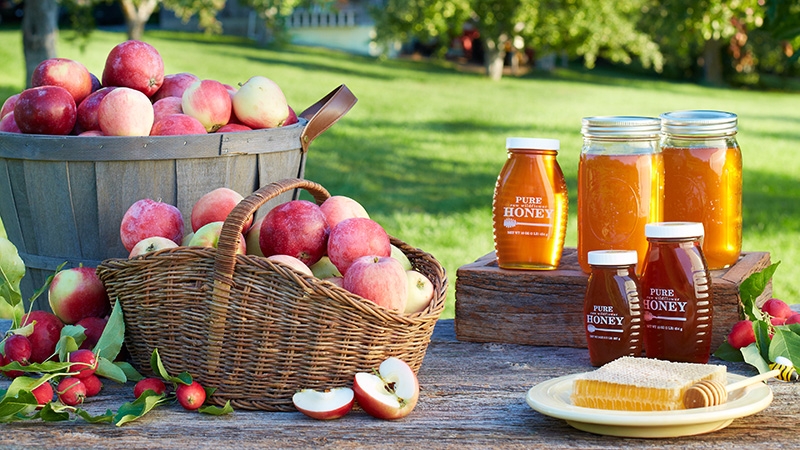
Shana Tova! Happy New Year 5781!
Thank you to everyone who helped make the holidays so special this year, including all who volunteered and all who participated and attended. Your presence made it all possible!
Welcome to the landing page for everything High Holidays at Middlebury College.
Rabbi Danielle Stillman and alumni cantor Aaron Mendelsohn ‘95 wish you and your families a sweet new year, and we eagerly anticipate seeing you all at services this year.
This page is where you will find what you need for a reflective, connected, and joyous High Holiday season. While we won’t be gathering as a community this fall in the physical way that we usually do, we will have plenty of opportunities to be together—both on Zoom and in person when it is safe and appropriate to do so.
Please visit this site often, as we will be updating it frequently with new content and opportunities.
High Holiday Sermons and Poetry
Rabbi Danielle Stillman’s Erev Rosh Hashanah Devar
Ben Dohan’s ‘20.5 Rosh Hashanah Day Devar
President Laurie Patton’s Kol Nidre Devar
Rabbi Danielle Stillman’s Yom Kippur Devar
View or print the Text Study on Jonah for Minchah discussion at 6 pm
Haftarah for Yom Kippur Morning, Isaiah 57:14-58:14
chanted and with an introduction by Robert Schine
Haftarah for Yom Kippur Minchah, first chapter of Jonah, through 2:1
chanted by Bruce Mendelsohn
Yom Kippur September 27 and 28, 2020
Sunday, September 27
Kol Nidre
Join us for the moving melodies of Kol Nidre, and a Yom Kippur sermon offered by President Laurie Patton. Kol Nidre will be played on the violin and sung by Eleanor Mayerfeld ‘19.5 and Rabbi Emeritus of Middlebury College Ira Schiffer.
Monday, September 28
Shacharit – Morning Service
Themes of the morning service and the Yom Kippur liturgy.
Torah Service
Chanting of the Torah—the ancient atonement offerings of Yom Kippur.
Sermon
Rabbi Danielle Stillman will share reflections.
Yizkor - Memorial Service
Anyone is welcome to Yizkor, whether you are remembering someone specific this year, or would just like to take a moment to acknowledge the enormous loss of life our country, and the world, has experienced recently. This year’s Yizkor service will be led by Rabbi Emeritus Ira Schiffer.
Musaf
This section contains some of the key moments of the Yom Kippur liturgy.
Interactive Family service
Gentle Yoga for Yom Kippur Afternoon
Joanna Colwell, a beloved local yoga teacher, will be leading us through a gentle practice that supports both fasting and reflection as we prepare ourselves for the final prayers of this day. Joanna teaches in the Iyengar Style and has been teaching remotely on Zoom since March. Wear comfortable clothes, and clear a space where you can do some moving, lay a mat if you have one, and focus on your yoga practice.
Minchah – Reading of the Book of Jonah and discussion.
We will read through the story of Jonah and learn and discuss some related texts.
Neilah, closing service
The closing of the gates. This is our last opportunity on Yom Kippur to turn toward a new approach for the new year.
Shofar Blowing and Havdalah
Hearing the sound of the shofar for the last time of the season, and re-entering regular time through the havdalah ceremony.
The Ten Days between Rosh Hashanah and Yom Kippur
High Holiday Perspectives and Reflections Lunches
Hello! We want to create a sense of community during the High Holidays for you to connect with college students across several campuses. We will be holding small group lunches during the week between Rosh Hashanah and Yom Kippur (September 21-25), where you can come together and reflect on the past year and the year to come. You will be given discussion questions to guide your conversation and help you think deeply in these days of repentance. There is a lot to process during this time, especially this year, and we hope to create a space where we can come together. The lunches will be 12-1pm, and we invite you to attend as many as you would like. Click here to sign up!
These lunches are being created and organized together by students from Middlebury, Swarthmore and Williams Colleges.
Radical Social Justice to Prepare for Yom Kippur
In this workshop, participants will discuss and learn about the ways in which radical social justice is relevant today and within Jewish tradition. We will do a Jewish text study that explores themes of radical social justice. We will also explore the interconnectedness of social justice issues and look for ways in which our actions can have meaningful impacts. Participants will leave with an actionable step that they can start working towards in this new year. Join us if you are interested in exploring this topic! Please come ready with paper and writing utensil(s)! Created by Mina Kianovsky and Keara Berlin (Macalester), Bella Pucker and Yamit Netter-Sweet (Middlebury), Naomi Horn and Simon Herz (Swarthmore) and Tali Natter (Williams).
To receive a Zoom link for this event, please email Yamit.
Collective Joy
Sign up to receive a daily email
Friday, Sept 25, 8pm EDT/7pm CDT for the Shabbat service
Join Rachel and Alex from Middlebury, Jared from Macalester, and Zoe from Swarthmore in a collective ritual of joy email experience! Sign up below and we will send you a brief email on each of the Ten Days of Teshuva (repentance). Experiences include a collaborative Spotify playlist, poems, guided meditation, just to name a few. The first email will be sent out THIS SATURDAY September 19th. ALSO: Join us for an intercollegiate Friday Night Shabbat Service on Friday September 25th, 8PM EDT / 7PM CDT. This is a very special Shabbat, Shabbat Shuvah, which falls between Rosh Hashanah and Yom Kippur - our two holiest holidays.
10Q
10Q is a project of Reboot. When you sign up, they send you a question a day for the ten days between Rosh Hashanah and Yom Kippur. The questions help you reflect on the past year and prepare for the next. This year they are accompanied by questions to help you reflect on this time of COVID as well. When you submit your answers, they store them for you and then email them back to you next year for you to see!
Sign up on their website: https://www.doyou10q.com/
The TAM/Red Kelly Trail next to the Golf Course
High Holiday Nature Pilgrimage
This nature pilgrimage will lead you through a series of reflections and experiences related to Rosh Hashanah. Twelve signs are posted along the TAM section of the woods that runs from near the track, up along the golf course and toward Route 30. As you walk at your own pace, each sign will invite you to pause and reflect on a different aspect of the holiday. We hope to have this pilgrimage installed on Friday, September 18 and we plan to leave it up until after Yom Kippur. Special thanks to Living Tree Alliance for creating it. Please note that this opportunity is only open to students because this section of the TAM is closed to visitors at this time.
One Thing I Ask
Wesleyan students Sarah Backer and Lisa Stein sing words from Psalm 27, verse 4. Arranged by Lisa Stein. This is video is shared as part of Creative High Holidays collaboration between Middlebury, Macalester, Swarthmore, Wesleyan and Williams. More exciting content/ritual opportunities will be posted as it is created.
Music playing, singing.
Achat sha’alti me’eit Adonai, otah avakesh (2x)
Shivti b’veit Adonai, kol y’mei chayay
Lachazot b’noam, b’noam Yah, u’l’vaker b’heikhalo (2x)One thing I ask, I ask of You, I earnestly pray for
That I might dwell in Your house all the days of my life
Knowing the beauty, the beauty of You, and to dwell in Your holy house!
Rosh Hashanah, September 18-20, 2020
Friday, September 18
Evening Service
Welcome the New Year with our Erev Rosh Hashanah service, and a sermon from Rabbi Danielle. Prepare apples and honey to bless and dip together after the service!
Saturday, September 19
Shacharit, morning service
This condensed service will sing us into a prayer space where we can begin to reflect on the themes of the New Year.
Torah Service
We will hear the story of Sarah and Hagar chanted from the Torah, and give and receive blessings through Aliyot.
Sermon
Ben Dohan ‘20.5 will share his thoughts.
Closing Prayers
This section will combine some highlights of the Rosh Hashanah musaf service, and the closing prayers.
Interactive Family service
Zoom link to be shared with those who register, please select chant service
Rosh Hashanah Chanting Service
Rebecca Gould will offer an hour of contemplative chant in the style of her teacher, Rabbi Shefa Gold (https://www.rabbishefagold.com/). Contemplative chant is an opportunity to get underneath the “wordiness” of our traditional liturgy and to focus on a “sacred phrase” that lies within a larger prayer, song or piece of text. By chanting the sacred phrase, we can take that phrase into our bodies and into our hearts and souls, perhaps accessing the meaning of a text in new and/or deeper ways.
Our hour together will be informal, “come as you are” and does not require any prior knowledge or experience. We will do some High Holy Days favorites, as well as learn some new chants. If you are shy about “singing in a group” this is the year for you to try chanting, because in Zoom format no one will be hearing you but YOU!
The TAM parallel to the golf course
Rosh Hashanah Nature Walk
This nature pilgrimage will lead you through a series of reflections and experiences related to Rosh Hashanah. Twelve signs are posted along the TAM section of the woods that runs from near the track, up along the golf course and toward Route 30. As you walk at your own pace, each sign will invite you to pause and reflect on a different aspect of the holiday. We hope to have this pilgrimage installed on Friday, September 18 and we plan to leave it up until after Yom Kippur. Special thanks to Living Tree Alliance for creating it. Please note that this opportunity is only open to students because this section of the TAM is closed to visitors at this time.
Sunday, September 20
Havurah members will receive an email with the location. If you are not on that list, please contact Mitch Pearl: mitchpearlvt@gmail.com
Outdoor, in person service, tashlich and shofar blowing for Havurah and Community members
An opportunity to come together in person to pray a short piece of the musaf amidah, engage in the ritual of casting off what we want to leave behind from our past, and in hearing the shofar. Wear your mask, dress for the weather, and remember to keep social distance. Bring your prayer book if you have one. Note that this is for Havurah and Community members only.
The Binding of Isaac
The Akedah, or “Binding of Isaac,” is one of the most challenging stories we read in Torah. Join us to hear it chanted and wrestle with its meaning in a discussion led by Curt C. and Else Silberman Professor of Jewish Studies, Robert Schine.
meet behind the MAC (Arts Center) above the pond
Outdoor tashlich and shofar blowing for Middlebury Students
An opportunity to come together in person and engage in the ritual of casting off what we want to leave behind from our past, and in hearing the shofar. Note that this is for Middlebury students only.


